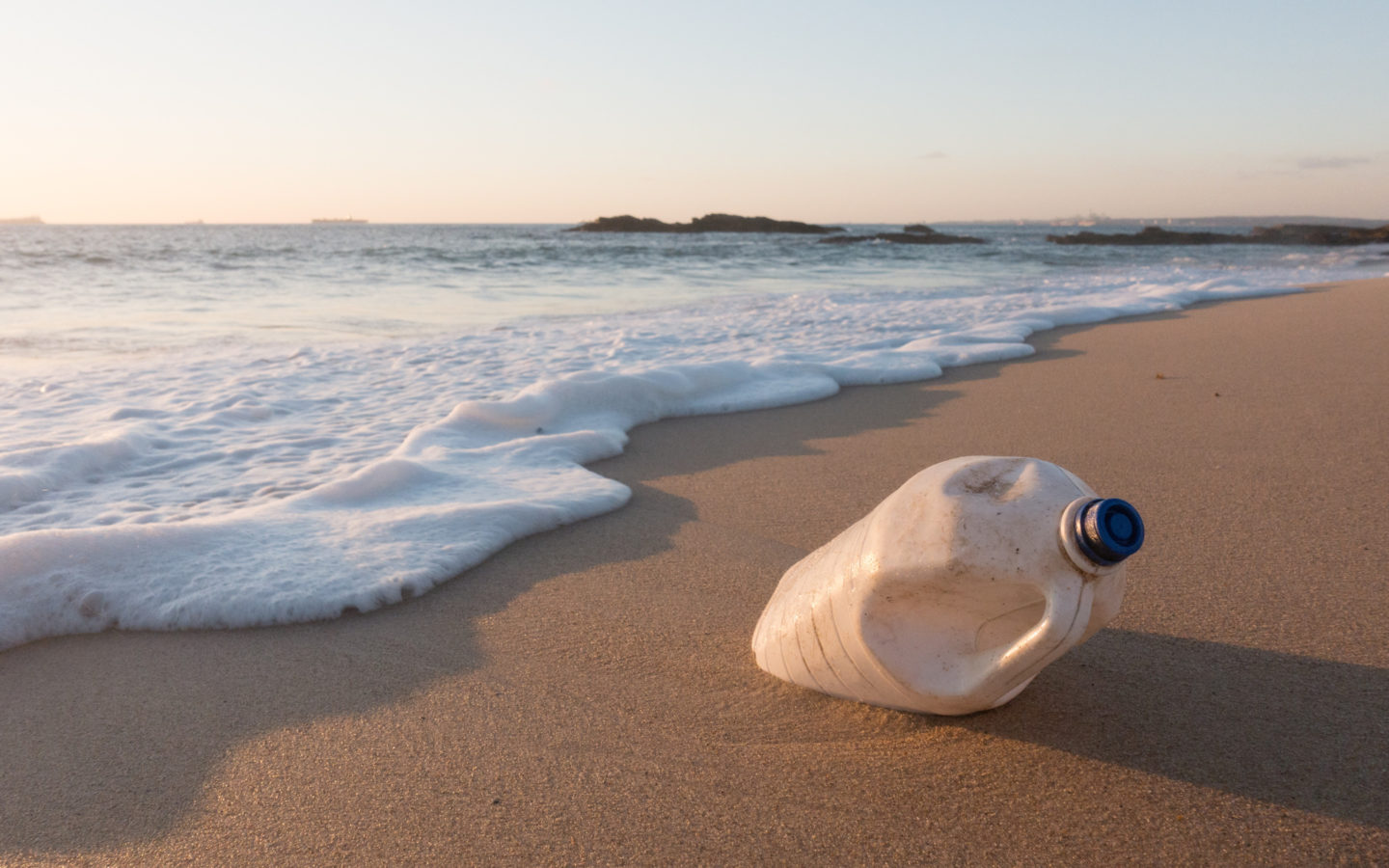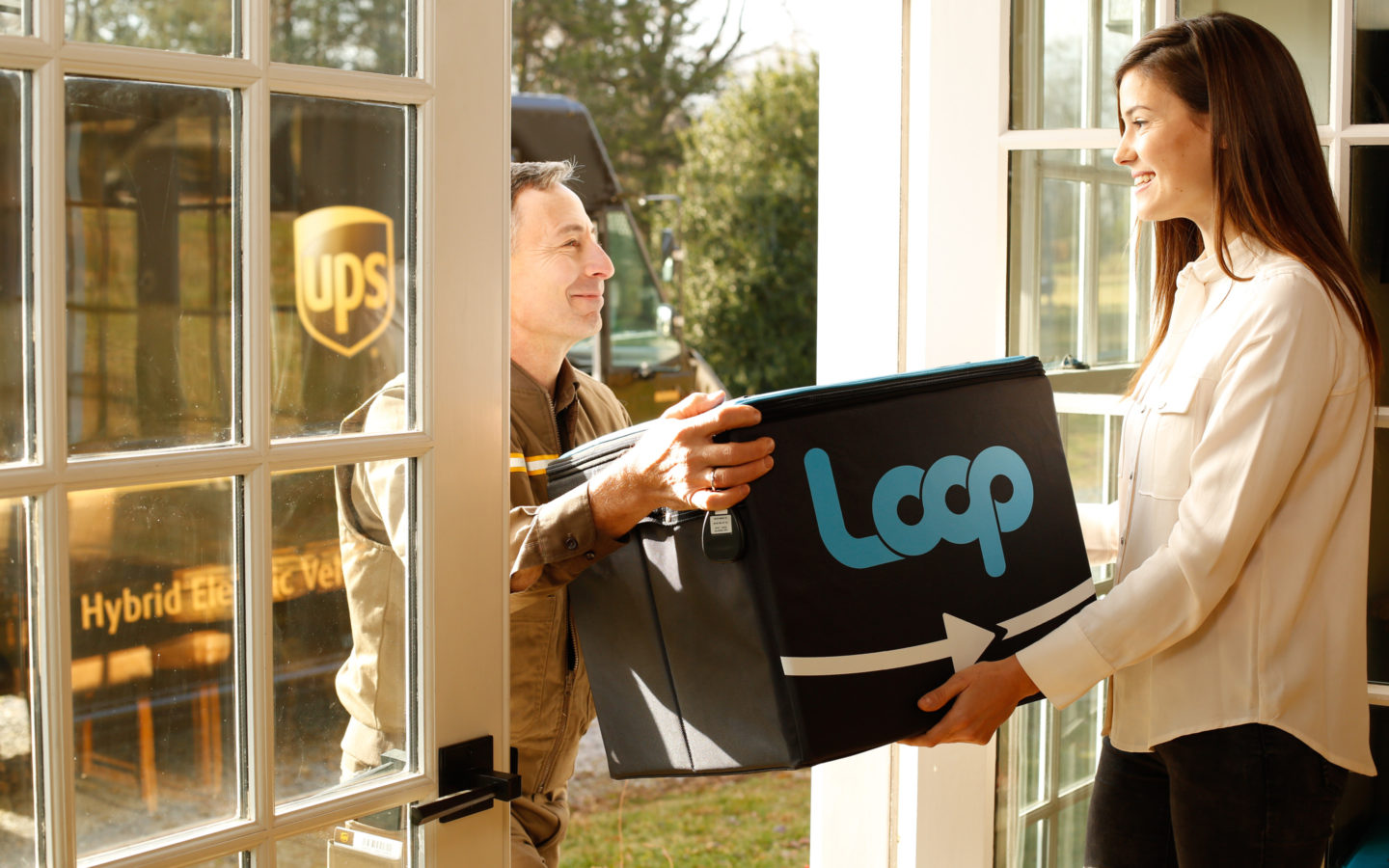It's official: The world has a trash problem. Landfills are filling up, recycling is becoming more expensive and less attractive to municipalities, and a lot of trash is finding its way into our parks, rivers, oceans—even our drinking water.
When trash is dumped in the landfill, it emits methane, a greenhouse gas that contributes to climate change, and when trash is incinerated it emits carbon and toxins that cause health problems. Many regions are running out of space to store their trash, so they're shipping it to far-off locations around the country and around the world.
That method of trash disposal has worked relatively well for the regions dumping their trash, but it's caused problems for the people who live where the trash is received. Yes, whichever way you slice it, that ever-mounting pile of trash will keep causing problems if we don't take charge of the situation.
For decades, municipal ordinances and business practices have made it difficult for ordinary consumers to easily and effectively reduce the amount of waste they generate. Convenience products and tempting time-savers have flooded the market and it's understandable why they've become popular fixtures in the average American home.
Unfortunately for the health of humans, animals, and plants, those convenience items come at an environmental cost. But the tides are turning: More than ever, consumers are eager to simplify their lives and explore sustainable living practices that brings health, balance, and cost-savings to their lives, while at the same time minimizing waste. And there are a number of companies making it easier than ever to live a sustainable life.
Scroll through to learn how several companies are helping ordinary people make healthy choices for their home, their family, and their planet.
By
Caitlin Castelaz
Time was, the zero waste movement was led solely by a fringe group of do-gooders who eschewed highly packaged big brands in favor of more sustainable (yet hard to find) alternatives. Today, as bulk foods sections arrive in mainstream grocery stores and demand for waste-free farmers markets increases, the shopping landscape has changed dramatically—and big brands have taken note. In response to the cultural shift, large brands like Unilever, Clorox, Procter and Gamble, and others have banded together to create Loop, a grocery delivery service that emulates the milkman delivery model of old: mainstream products like Pantene shampoo, Häagen-Dazs ice cream, Degree deodorant, Hidden Valley ranch, and Tide laundry detergent delivered to your door in reusable, returnable containers. When you're ready for a new delivery, make your order, leave your empty containers outside your door, and await the arrival of the UPS delivery driver who will bring familiar favorites in an unfamiliar, yet delightfully innovative, new way.
Visit LoopStore.com to sign up to be notified when the service launches later this year.
For those who are ready to declutter their cosmetics shelf and create less plastic waste, there's bottle-free shampoo. With a small footprint and no packaging,
Lush shampoo bars offer variety and cost savings, as well as space-saving and environmental benefits. Available in several flavors like rose, lavender, citrus, and honey-toffee, each bar-soap-sized puck equals two to three bottles of liquid shampoo—up to 80 washes—and sells for as little as $10.95 per bar.
Available at LushUSA.com; from $10.95.
As the market for recycled plastic shrinks, some municipality recycling programs are no longer accepting plastic. If your region still accepts plastic products, chances are it won't process—and has never processed—plastic toothpaste tubes. Toothpaste tubes are often made out of multiple types of plastic, and coated with remnants of toothpaste, making them difficult to recycle. To eliminate these awkward plastic items from the waste stream, some zero waste advocates make their own dental cleaning solution from baking soda and coconut oil. If the thought of slathering baking soda on your chompers sounds extreme, there's another low-waste alternative: Bite.
This up-and-coming brand creates small toothpaste bits—about the size of a tablet of gum—packaged in glass jars. Crunch down on the toothpaste to release the cleaning lather, and brush as normal. Sign up for a subscription, and Bite will deliver another batch to your door, packaged in a compostable bag, whenever you need it.
Available at BiteToothpasteBits.com; from $12.
Another bit of plastic that municipal recycling programs won't accept? Plastic cling wrap. If you want to keep this trash out of the landfill, you can ditch food wraps altogether and opt for reusable food storage containers. However, if you aren't ready to say goodbye to the convenience of wrapping leftover produce, marinating meats, or tomorrow's lunch, there's a sustainable solution in Bee's Wrap. This company offers reusable food wraps made of cotton cloth coated in beeswax to create a pliable, bendable, wrappable material that can cover sandwiches, snacks, leftovers, bread, and more. After use, the wrap can be wiped clean, then used again and again. When it finally loses its sticking power, it can be kept out of the landfill and sent to the compost heap.
Available at BeesWrap.com; from $6.
They say one man's trash is another man's treasure, and for TerraCycle that expression couldn't be more true. This company recycles all manner of waste types that municipal recycling programs won't accept. Water filters, batteries, pens and markers, broken action figures, cereal bags, cassette tapes, worn plastic lawn furniture, pet bowls, electronic waste, shoes, stuffed animals, flip flops, insulin needles, and much more—all of it can be salvaged, sterilized, and recycled by TerraCycle, funded by like-minded companies.
Visit TerraCycle.com to learn about their full range of recycling programs.
Flip and Tumble
Give Flip and Tumble's produce bags a chance and you won't go back to using the plastic produce bags available in grocery stores. While plastic bags are prone to ripping, cause food to spoil when transferred to the fridge, and clog your kitchen junk drawer—sturdy, washable and breathable Flip and Tumble bags endure for years and countless uses. Not only do they make life just a little easier, but they're gentle on the environment by eliminating plastic from the waste stream.
Available on Amazon; $12 for a set of five bags.
When you think about it, selling soap in packaging doesn't make a ton of sense. After all, if there's any product that doesn't need the sterile protection offered by packaging, it's an item designed to deliver germ-busting cleaning power. Bring a couple bars of Good soap home from the store and rinse before washing your hands to remove any dust that gathered in transit. These bars, available in several scents, last longer than a standard-size bottle of liquid soap and deliver the same cleaning ability.
Available at Whole Foods.
Seventh Generation
Yes, we're going there! If the entire purpose of a product is to become trash, why should it be made of new materials? Seventh Generation believes that anything that's destined for the trash should be made of recycled materials, thereby reducing waste. That's why all of their paper products like bath tissue, facial tissue, and paper towels are made of 100% recycled paper. Consumers who strive for a plastic-free life will love the varieties of bath tissue that are wrapped in paper packaging instead of the traditional plastic.
Visit SeventhGeneration.com to find retailers near you.
Want to dip your toe into the zero waste lifestyle? Look no further than Whole Foods. Say what you want about this health food giant, but the Amazon-owned brand is taking initiative to make healthy eating more affordable and accessible. For waste-free options, head straight to the bulk section to load up on grains, pasta, legumes, dried fruits and nuts, candy, and more. Many stores offer bulk peanut butter, freshly ground coffee, bulk olives and salad bar, on-tap kombucha and freshly squeezed juice. Offerings differ by location. Bring your own bag or jar to capture these fresh ingredients, and be sure to use the on-site scales to record the weight of your container before you fill it. Write this weight (known as the tare) on the jar to let cashiers know how much weight to deduct from your bulk purchase.
Visit WholeFoods.com to find a location near you.
Dr. Bronner's
America's favorite Castile soap has long been a staple in the hygiene section at health food stores, many of which sell the soap in bulk. Buy a plastic bottle of the stuff once, then return to the store to refill your bottle—or bring your own jar from the start.
Visit drbronner.com for store locations.
Ziplock bags generate a lot of plastic waste in homes across the country. Whether you use them to pack lunches, store freezer meals, or marinate dinners, chances are you use them once, then toss them in the bin (most municipalities won't recycle the bags). If you're stuck on these sealable bags, there are several reusable options on the market—including those produced by Full Circle. Available in several sizes, these leak-proof, BPA-free reusable plastic bags can be labeled with a dry erase marker, then wiped clean, and placed in a dishwasher for easy cleaning.
Available on Amazon; $13.49 for a set of four bags.
With the rise in minimalist mindsets and environmentally conscious lifestyles, there's been a growth in zero-waste and lower waste grocery stores and outdoor markets. Do some exploring in your hometown to see what options are available to you. To help you on your journey,
Zero Waste Home, a free web-based app, provides a directory of grocery stores, markets, and pet stores with bulk foods and zero-waste hygiene products. So go ahead and log on—and happy exploring!
Available at Zero Waste Home; free.



